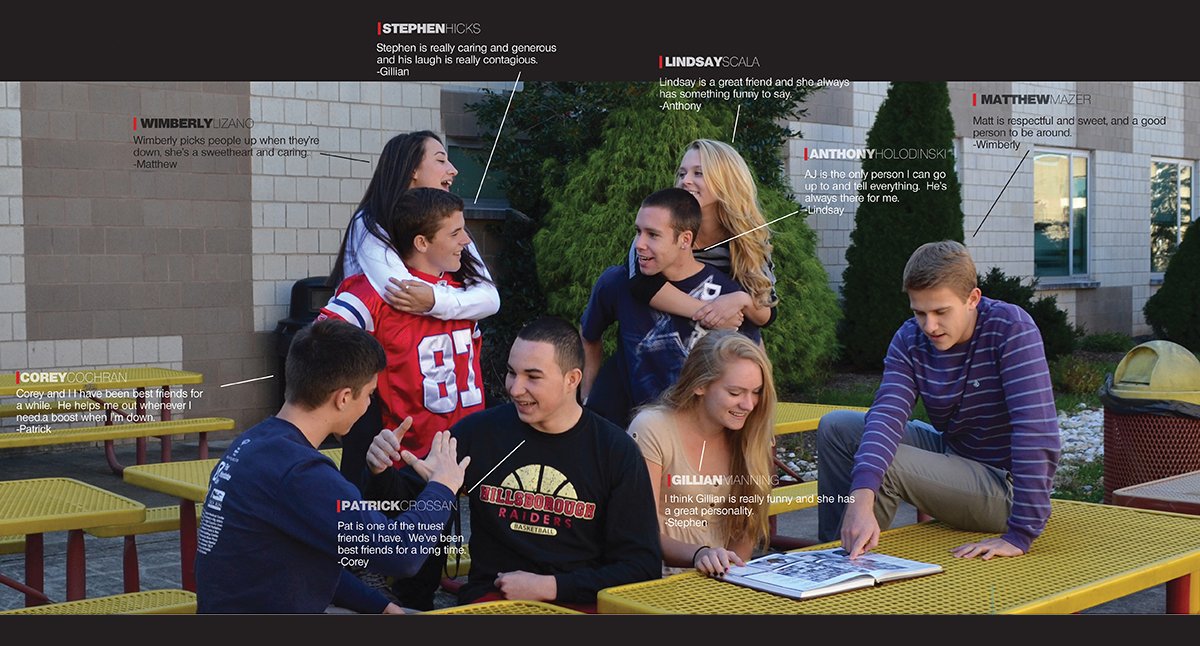
Do you hear something? Listen closely. Hearing lacks intention; it is passive. Listening, on the other hand, is conscious and active. If you listen, you will hear students saying the most incredible things in the halls and classrooms at your school.
Art Linkletter may be known only to baby boomers and their parents who watched his daytime television show “House Party.” The show had a segment called “Kids Say the Darndest Things” where Linkletter would ask a grade-schooler a simple question like “Who was George Washington’s wife?” A child who was asked that question said, “Miss America.”
Are high school students as funny as grade-schoolers? Of course they are. They say things that reflect their lives, interests, personalities and opinions.
Overheard:
“I can’t believe I have to waste my McDonald’s money on a book for English that I will never read.” – Carolyn Fain
“I was looking for someone special to give this to, but I couldn’t find anyone. So here, you can have it.” – Elise Yun
“Change that word. Find a cinnamon.” – Matt Reese
“Before you graduate, you should learn your name.” – Georgette Delassus, teacher
“You’re such a card. You really should be dealt with.” – John Paytosh
These quotes were on the cover of a book with the theme “Look Who’s Talking.” But you don’t need a theme to direct your collection of memorable quotes.
HL Hall, retired publications adviser at Kirkwood HS and past president of JEA, required students to listen to what was being said around them: “The Pioneer staff started using these “Overheard” quotes as a way to get verbal coverage for students and faculty who might not otherwise have been mentioned anywhere else in the book except for their names by their formal portraits. They had to listen for something unusual, something unique, something surprising. They had to follow-up with what they heard by finding out the name and identification of the person making the quote and the context for the comment as well as the date and place the incident occurred.
In other words, the quotes had to include the 5Ws and H. Since it was the policy of the Pioneer that reporters had to dig to get quotes that would play on readers’ emotions, the comments often were humorous. I thought it was a great way to add some humor to the book. Every Friday they reported on what they heard, and when and where they heard it.” Have students carry a reporter’s notebook and encourage them to write down what they heard as soon as possible.
The ability to listen is also essential in the interviewing process. A study done at the University of Texas found that people remember 10 percent of what they read; 20 percent of what they hear; 30 percent of what they see; 50 percent of what they see and hear; 70 percent of what they say; and 90 percent of what they do and say. As staff members listen to responses, they should repeat what the interviewee says: “Let me see if I got this right. You’re saying.. .”
Repetition clarifies what is being said and helps the As staff members listen to responses, they should repeat what the interviewee says: “Let me see if I got this right. You’re saying.. .” Repetition clarifies what is being said and helps the staff member remember it (the 70 percent).
Effective listening has some important rules:
- Stop talking.
- Ask questions and listen to the answers.
- Let the interviewee talk.
- While the he or she is talking, listen rather than thinking about how you would have answered or what the next question will be.
- Clarify.
- Take notes.
Finally, it is important to focus on the interview. Being unfocused is why people lose their car keys. When they put them down, they are not consciously focused on what they are doing. They are not present; therefore, they probably won’t remember where the keys are when they need them.
Here are some important guidelines:
- The only acceptable quote is one that nobody could have said, but the person being quoted.
2. The quote captures the unique personalities and/or perspectives of the students.
3. To draw readers to the copy, index both quotes and pictures.
There is no such thing as multi-tasking. In actuality, you are serial tasking. So, turn off the cell phone, clear your mind and reside in the moment.

